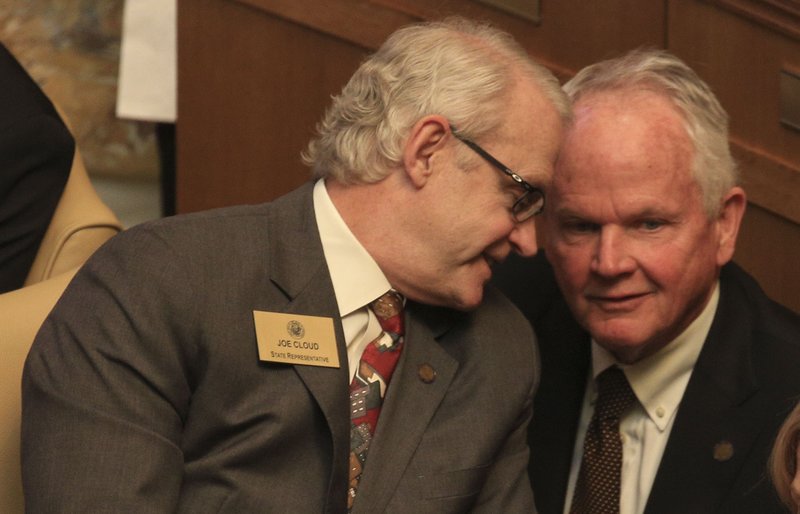A Senate committee voted down a proposal on Friday that would require Bible courses in public schools if enough students requested the class.
House Bill 1626 by Rep. Joe Cloud, R-Russellville, would mandate schools offer an "academic study of the Bible" if at least 15 students request it.
Schools may already offer such a course as an elective, but it isn't required. The class should consist of a "nonsectarian, nonreligious academic study of the Bible and its influence on literature, art, music, culture, and politics," the law states.
The bill was shot down in a split voice vote by the Senate Education Committee after several senators raised concerns about the precedent such a law would set.
"It bothers me because I don't want to set the precedent that students get to determine what's taken and what's not," said Sen. James Sturch, R-Batesville.
Sen. Bob Ballinger, R-Berryville, said the Bible course presented a unique case because since lawmakers voted to allow the course in 2013, only a handful of districts have offered it. Supporters of the bill have said that some districts are hesitant to offer the course, fearing a backlash, and because there's not yet a statewide curriculum created by the Department of Education.
[RELATED: Complete Democrat-Gazette coverage of the Arkansas Legislature]
Deputy Education Commissioner Ivy Pfeffer told the committee that the agency expects to have a standardized course created for the upcoming school year, which will likely increase the number of schools providing the course.
Ballinger said the Bible is "foundational" to deeper understanding of many other topics, such as literature, history and government.
Sturch emphasized that the courses may already be offered.
"The school district already had the ability to do it," Sturch said. "The students already had the ability to take it. What problem are we trying to solve?"
Ballinger replied that Sturch's line of questioning would ultimately lead to the issue.
"I think you hit the nail on the head," Ballinger said. "The students aren't having the opportunity to take it, because the schools aren't offering it."
Richard Abernathy, the executive director of the Arkansas Association of Educational Administrators, spoke against the bill, saying the legislation would take away local control and give it to a group of students. He added that such a law would create a slippery slope, pointing to another bill that would create a similar mandate for schools if students requested a journalism course.
"I think we see this snowballing," he said.
A Section on 03/30/2019
